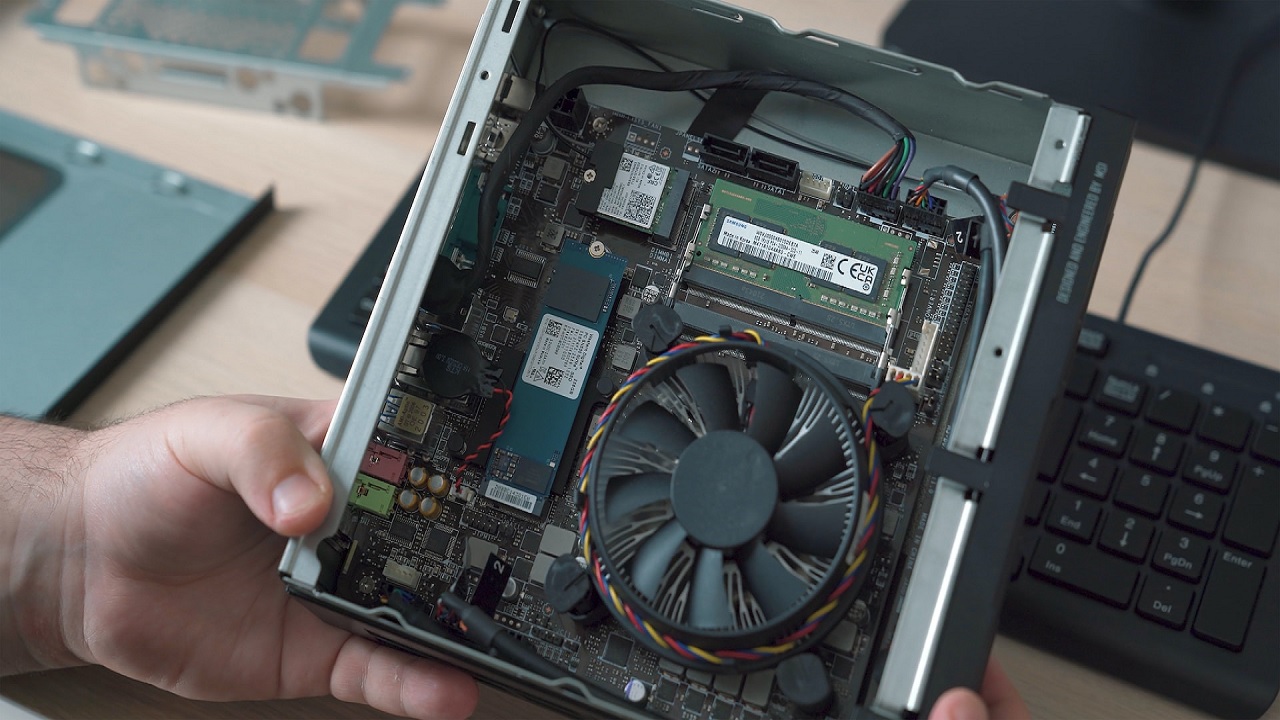A time has come when we tend to reduce the size of everything to a smaller figure to save space while trying to utilize all the free area available. Check out 14 pros and cons of a mini PC in detail.
In this condition, mini computers do a brilliant job. They replace the large CPUs and you have a computer that you can use to perform numerous computing jobs, in the size of a small gift box.
You will learn more about mini PCs as this article is intended to fulfill exactly this purpose.
KEY TAKEAWAYS
- The compact design and small size of a Mini PC offers more mobility and an option to use several units.
- A Mini PC consumes very little energy and therefore is much more pocket friendly in comparison to other types of computers.
- A Mini PC needs little maintenance and little space to store or use.
- Mini PCs do not offer much expansion or upgradability options and are also low in graphics performance.
In This Article
Pros and Cons of a Mini PC:

The Pros of a Mini PC
1. Compact Size
They are very compact and thus many units can be used.
Think about this, a desk or a cabinet that requires separate space for storing the CPU doesn’t require it anymore since the mini PC can sit right beside your monitor.
2. Highly Portable
They are very portable and lightweight. So, these can be carried from one place to another quite easily.
You can easily move a mini PC from one room to the other without straining your back.
3. As good as any other computer
They have most of the features of a full-tower desktop and thus, can be used for different computing jobs.
The user gets all the necessary ports, along with wireless features like WIFI and Bluetooth.
Some Mini PCs with extra ports support multiple monitors as well.
4. Pocket Friendly
They have low power consumption. You can use a Mini PC all you want and yet, it wouldn’t make much of a difference in your monthly electricity bill.
The average power consumption of a mini PC is multiple times lower than tower-sized desktops or laptops.
The compactness they offer doesn’t charge you much and they are actually cheaper than other types of computers.
5. Almost no need for maintenance
Mini PCs do not require much maintenance and you need not worry about dust, soot, or other air particles since they cannot enter into the chassis or damage the parts inside.
The case has very few openings other than the ports, so there is no need to be afraid of insects either.
6. Solid stature
They are quite durable and usually last long without repairing, of course, if you have chosen a trusted brand.
There are some military-grade Mini PCs available that you can choose for extra protection.
7. Varied OS support
Different Mini PCs are available with the choice of your preferred Operating System and hence you can choose one depending on which you require. Some have a Windows OS, while others are ‘Chromeboxes’. The ones having Mac are costly but equally useful.
8. Easy to store
Mini PCs are available with a VESA mount and so can be hung on a wall, behind a TV or a monitor whichever you use and your desk gets a cleaner look.
The Cons of a Mini PC
9. Less Expansion
They have limited expansion because of the small space inside. This means that you cannot even increase the internal storage in most cases.
10. Restricted Upgradability
Mini PCs are not very upgradable. This is why users may have problems in the long run if their usage patterns change.
So if you intend to upgrade the specs after a few months of buying, it would be better to go with a tower sized desktop.
11. Weak in Graphics
Most affordable variants of these devices have an integrated graphics chip.
Moreover, there won’t be a free slot to add a GPU, and this weakens the PC’s power of processing graphics.
12. Less usability
Because of the hardware hindrance, they have limited usage and cannot run heavy tasks.
You cannot use such a computer for serious gaming, high-end editing, or machine learning.
Even the most expensive of these cannot compete against a mid-range desktop or laptop.
13. Heating Issues
Most of the computers of this kind do not have adequate cooling, and thus you have a heating problem that disturbs your flow of work.
Under the slightest workload, you will see that it reaches high temperatures and is not suitable for working anymore.
14. No accessories
They do not generally come with basic accessories like a keyboard, monitor, and mouse and you need to buy those separately.
You might also have to buy a DVD reader if you need one.
Conclusion
With computers being needed by everyone, mini PCs can be very useful in homes and offices. They bring a lot of potential to you and are surely a type of device that would have much usefulness in the future.